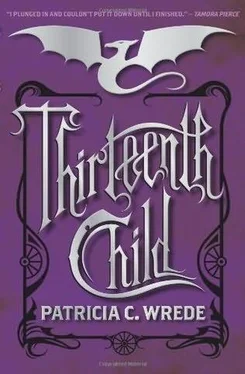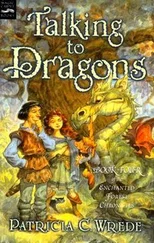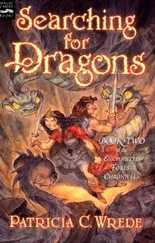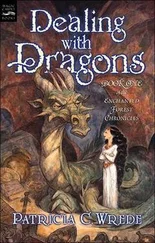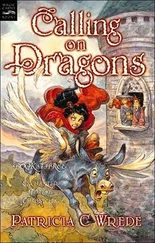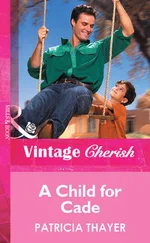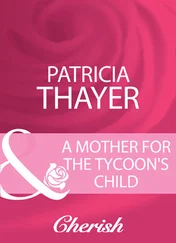I didn’t mind Rennie. I spent most of the trip looking out the window, watching the land change. First, there were plowed fields and small villages, then big rolling mountains that the train had to wind through like a snake because it couldn’t just climb up and down like a mule or a horse. Then there were midland cities, bigger than Helvan Shores, almost as big as the great ports on the East Coast, but bare of trees and full of dust.
Whenever the train stopped at a station, we would get off and run up and down the platform to stretch our legs. Hugh wanted to explore, but Mama wouldn’t let him. She said there wasn’t enough time, and the train wouldn’t wait for him if he got lost and was slow coming back. Even at the meal stops, when all the long-riding passengers were let off for an hour to eat in the little dining room at the train station, Mama insisted that he stay close.
In between stops, Papa told us about the North Plains Territory. Mill City was right at the edge of the Great Prairie, on the Mammoth River. To the east were forests of oak and maple and pine, and the farms that men were carving out of them despite the haunts and greatwolves and Columbian boars that lived in them still. To the west were the plains, the wild country where great herds of mammoths and bison trampled everything in their path, woolly rhinoceroses with horns on their noses as long as a grown man’s arm made the earth shake when they charged, and steam dragons and spectral bears hunted anything that moved.
On the far side of the plains were mountains, sharp and high, that no one had seen but a few explorers. Papa said that at least ten expeditions had tried to find a way through them to the Pacific Ocean, but only three men had ever come back alive, and they were stark out of their heads. There was a monument in the capital to Lewis and Clark, who headed the first group that went missing, back in 1804. It was more than wild country; it was unknown.
I loved listening to Papa’s stories, but it made me wonder what Mill City would be like, being right at the edge of the wild like that. I could see the country changing around us as the train carried us farther west. The stops were farther apart, and when we got off the train to run, the platforms were shorter. Then the train plunged into the woods, and we watched the trees stream past the windows, ancient and dark and frightening despite the sunlit slash the railroad company had cleared through their midst to run the trains. I stared out the window at it for an hour, and fell asleep still staring.
Lan shook me awake when we reached Mill City. I’d begun to worry that it would be another tiny place like the towns we’d passed through, but it wasn’t. It wasn’t like Helvan Shores, either. Everything looked new and raw—the square warehouses near the station, the dusty dirt roads, the station itself. Even the people and wagons looked like they’d only just been finished; neat enough, but without the kind of polish folks had back home. And over to the side, past piles of logs and crates, just visible between the rows of big, flat railroad cars, was the dark, foamy water of the Mammoth River. On the far side, the western side, there was just grass and a few trees.
Mr. Farley, the dean of the college, had come to meet us with three wagons and several large men to help with our trunks. Mama rounded up all us children and told us in a no-nonsense tone to stay right there until we were ready to leave. Not even Hugh so much as thought about disobeying.
We stood and watched the wagons and the people passing by. Rennie and Hugh and Jack started arguing about something, but I didn’t pay attention. I was still half-’mazed with sleep and the strangeness of this new place. Then, just as Papa and Mama came back to collect us, I saw a woman walking in our direction, and I felt a jolt go through me. It was as if I recognized her, even though I’d never seen her before.
She was a tall black woman wearing a high-crowned hat trimmed with cherries. A white lace neck scarf fell across the top of her close-fitting blue jacket. Her lips were full, and her crinkly black hair made an enormous bun at the nape of her neck, but what I remember best were her eyes. They were wide-set and bright with intelligence, and I felt another shock when her gaze locked onto mine.
She held my eye for only an instant, then nodded politely and passed on to the grown-ups. But I knew she was still aware of me.
“Morning, Mr. Farley,” she said in a deep, clear voice. “Is this your new professor?”
“Ah, yes,” Mr. Farley said, looking nervously at my parents. “Ah—”
“Do please introduce us,” Mama said to Mr. Farley.
“I—yes, of course,” Mr. Farley stammered. “Mr. and Mrs. Rothmer, allow me to introduce Miss Maryann Ochiba. Miss Ochiba, Mr. and Mrs. Rothmer.”
“Pleased to meet you,” Miss Ochiba said. She and Mama looked at each other long and hard, and then they each gave a little nod, as if they’d had a whole conversation and both had come away satisfied. “These will be your children,” Miss Ochiba went on as if there’d been no slightest pause. “They’ve been saying you have a good-sized family.”
“Any size that’s wanted is good,” Mama said, and then told her our names.
“I teach in the day school,” Miss Ochiba said when she was done greeting each of us. “Will your children be attending there?”
Mr. Farley looked alarmed. “Oh, I don’t think any decisions have been made just yet. The Rothmers have only just arrived.”
“Perhaps you’ll come to tea some afternoon so we can talk it over,” Miss Ochiba said to Mama. “Day school doesn’t start for another three weeks, so I have my afternoons free.”
Mr. Farley opened his mouth to say something else, but Mama beat him to it. “I should be delighted,” she said. “Send the day and time around tomorrow.”
Miss Ochiba smiled suddenly. “I’ll do that, Mrs. Rothmer. Nice meeting you.” And she sailed off down the street.
Mr. Farley gave a big sigh and called some directions back at the men who were pulling out in the two wagons loaded with our trunks. We all piled into the back of the last wagon, with Mama and Papa and Mr. Farley up front. Rennie started to complain about not having a seat, but after one look from Mama she just flopped down in the wagon and took out her temper in glaring at Hugh and Jack. The boys didn’t notice. They were too busy hanging over the side rails and pointing, though Hugh did remember to keep a grip on the seat of Lan’s britches so he wouldn’t fall out.
I let them push me up to the front, right behind the seats, where you couldn’t see very well. I was curious about Mill City, maybe as much as they were, but I was also a mite scared. I didn’t expect things to be much different, no matter what Mama thought. As soon as people found out I was a thirteenth child, I was sure they’d make my life every bit as miserable as ever they could. But without my cousins, it wouldn’t be as easy. Marna and Lynnie and Simon and the others had known just exactly what little things to do to drive me wild and which things were most hurtful to say. Things that people who weren’t family wouldn’t think of. Maybe here, people wouldn’t catch on so quick.
So I was pleased enough to stay out of sight, even if it meant I didn’t see much. Besides, I could hear Mama and Papa and Mr. Farley talking, and that was at least as interesting as Mill City.
“We have a bit of a drive ahead of us,” Mr. Farley said as the wagon started to move. “The college is being built about three miles away, as the crow flies, but there’s a loop of the river in the way, and the new bridge isn’t finished yet. So we have to go around.”
“It will give us a chance to see more of the town,” Mama said. “And it is a lovely day for a drive.” Just as if we hadn’t all been sick to death of riding after two days on the train.
Читать дальше
